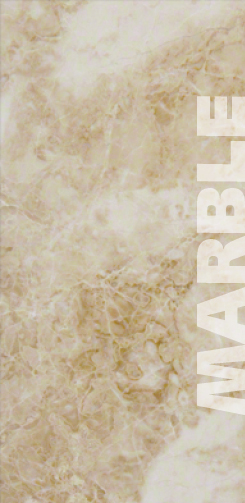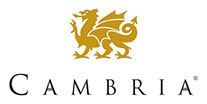
1327 East 75th Avenue • Anchorage, AK 99518
phone 907.336.3617 • fax 907.336.3616
email nccountertops@gmail.com



TYPES OF PRODUCTS
•
•
•
•
•
•
•
MARBLE
Marble stone is formed from limestone, superheated to form its unique crystalline structure.
If you are looking for a surface to sustain through the ages, this natural stone countertop material is perfect for you. Its naturally cool temperature is pleasing for cooking as well as keeping any workspaces temperature controlled.
LEADING BRANDS CARRIED BY NORTH COAST COUNTERTOPS - Feel free to explore their sites
MARBLE COUNTERTOPS PROS & CONS
The subtle sheen of marble countertops evoke an air of elegance that can add a timeless ambiance to any home. Luminous, luxurious marble brings a crisp brightness that soapstone, granite or man-made materials simply can’t duplicate. Choosing the classic look of marble countertops for your kitchen, bar or bathroom offers a number of advantages.
AFFORDABILITY
Even though it looks stunningly expensive, marble can actually cost less than other natural stone countertop materials. Although the cost can vary depending on the exact type and thickness chosen, marble is often less expensive than granite or quartz.
durabILITY
Marble is a natural stone, so it’s more resistant to scratching, cracking and breaking than many other available countertop materials. In spite of its durability, marble is softer than granite, so it’s possible to incorporate attractive design elements, such as fancy edges, during the fabrication process.
Distinction
Man-made countertop materials attempt to imitate the look of marble with only limited success. Since marble was created from sedimentary dolomite or limestone rock through a natural process, each piece is unique in appearance. The wide range of hues and colors found in marble are determined by the area of origin, and the proportional mix of minerals in the original limestone. The beautiful and distinctive veining this stone is known for comes from impurities trapped in the limestone when earth’s extreme heat and pressure transformed it into marble.
heat resistance
Marble has long been favored by professional chefs and home bakers because it stays cool, making it ideal for rolling out pastry. What’s not as well-known is that marble countertops are heat resistant as well. Marble won’t catch fire or burn, but it’s wise to preserve the finish by not placing a hot pan or pot on the surface without protection.
LONGEVITY
Marble has been used as a building material for a very long time, so its ability to withstand the test of time is well documented. When it’s expertly installed and properly sealed and maintained, you can expect to enjoy the beauty of marble for a lifetime.
WEAKNESSES
There are two primary reasons that marble countertop installation is not recommended for the kitchen. These concerns are severe enough that some marble countertop manufacturers won’t warranty their counters if they are installed in the kitchen.
The first concern is the porous nature of marble. It’s more porous than granite, so it more readily absorbs liquids. That means that oil, wine, juice and other spills penetrate deeper into the stone very quickly, and they are hard, if not impossible, to get out. Even in the bathroom, be cautious with things like nail polish, liquid makeup or remover that can stain the tops. Marble's natural beauty often leaves people undeterred by this eventuality, but fortunately there are sealers which are commercially available for the do-it-yourselfer, as well as professionals who can help.
Marble can and should be sealed when installed and again every few years. However, if it is not done properly or often enough, staining is a “not if, but when” proposition. While no products available on the market today offer a panacea, if you do accidentally stain or scratch your marble countertops, you do have some options.
The second reason to be concerned about marble kitchen counters is that the material isn’t sturdy enough for the kitchen. Sharp knives can scratch the surface. Heavy pots or mugs may chip the marble or even break off a corner.
These are the primary reasons some manufacturers won’t warranty marble countertops if used in kitchens and many countertop installers won’t install them. There are too many complaints from homeowners when their marble kitchen countertops stain, scratch, chip or crack.
MAINTENANCE & CARE
If you’re like many homeowners, you’re probably dreaming about a large slab of beautiful marble sitting atop your kitchen island. But you may be a bit apprehensive about selecting such a luxurious material because of the maintenance required in order to help protect your investment. However, you might be surprised to discover that natural marble really doesn’t need the extraordinary or time-consuming care you might have expected. In fact, caring for your marble is a breeze if you know what—and what not—to do. And if you practice these tips for proper cleaning and maintenance, you’ll be able to keep your kitchen and your marble countertops looking fabulous for years to come. Sealing One of the characteristics of marble is that it’s a very porous material. It must be sealed in order to help protect your countertops against unwanted stains. A protective sealer or impregnator will repel spills and buy you time to wipe up any messes. When sealing your marble for the first time, two or three coats may be required in order to create an effective seal. Reapplication depends on the porousness of your particular marble, as well as the quality of the sealant and application, and could range anywhere from a few months to years. Lighter colors like those in a Carrara White Marble should usually be re-sealed more often than darker colors, since these soft hues show stains more readily. Daily Cleaning Because marble is mostly made of calcium carbonate, the natural material is very sensitive to acidic products. For this reason, it’s best to use a mild, neutral pH detergent or stone soap when cleaning your marble countertops. Make sure to rinse the surface with clean, clear water, and dry it after you’ve finished cleaning. Do not use acidic cleaners like vinegar or lemon juice, abrasive cleaners, alkaline cleaners not made for stone, or a mix of bleach and ammonia, as this creates a toxic gas. Also remember that if liquids are not wiped up quickly, they can etch your marble, dulling its shiny surface. Make sure to wipe up any spills, liquids, or oils right away to avoid staining. However, if the surface does become etched, your natural stone can still be buffed to return to its original polish. Preventing Damage It’s important to do simple marble maintenance tasks to protect your stunning stone from damage. Place glasses on coasters; this is particularly important for acidic drinks like juice, soft drinks, or alcohol. If placing a hot dish or other item on your countertop, use a trivet or heat absorbent pad underneath it. Plates, silverware, and other kitchen items should sit on placemats to avoid scratching your countertop. If you’re unsure about how or what you need to keep your Arabescato Carrara Marble or Calacatta Gold Marble in tip-top shape, simply ask your local distributor. The professionals at MSI will be happy to answer your maintenance questions or address any concerns.











